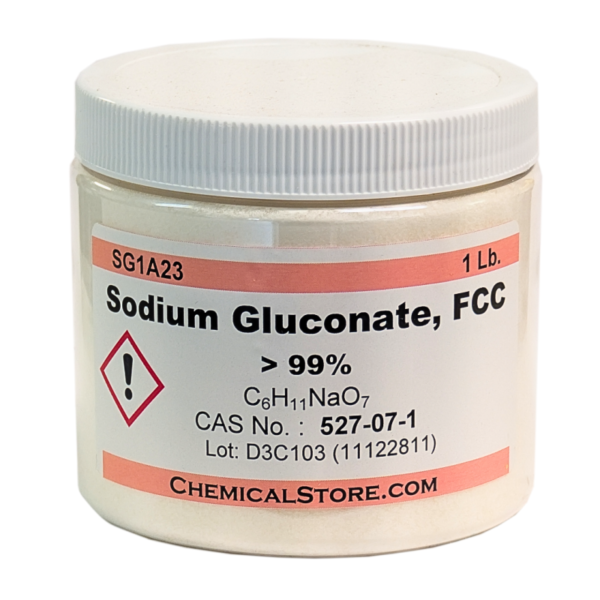Description
Sodium Gluconate: The Unsung Hero of Multiple Industries
Sodium Gluconate is a fascinating compound that often flies under the radar, yet plays a crucial role in a diverse range of industries. From construction to pharmaceuticals, this versatile salt of gluconic acid contributes significantly to process efficiency and product performance. Let’s delve into the world of sodium gluconate and uncover its key properties and applications.
What is Sodium Gluconate?
Sodium Gluconate is the sodium salt of gluconic acid, a naturally occurring organic acid derived from glucose. It appears as a white, granular powder and is highly soluble in water. This makes it easily incorporated into various formulations. What truly sets sodium gluconate apart is its unique combination of properties:
- Chelating Agent: Perhaps its most significant feature, sodium gluconate is an excellent chelating agent. This means it can bind to metal ions like calcium, iron, copper, and aluminum, preventing them from interfering with chemical reactions or causing undesirable effects.
- Retarding Agent: In certain applications, it acts as a retarder, slowing down the setting or hardening process. This is particularly useful in the construction industry.
- Biodegradable and Non-toxic: Contributing to its appeal, sodium gluconate is both biodegradable and non-toxic, making it an environmentally friendly and safe alternative to other chemicals.
A Wide Spectrum of Applications:
Its versatile properties make sodium gluconate a valued ingredient in a broad spectrum of industries:
- Construction: Sodium gluconate is widely used in the concrete industry as a water-reducing admixture and set retarder. This allows for improved workability, increased strength, and extended setting times, especially in hot weather conditions. It also helps to prevent efflorescence, the unsightly white salt deposits that can form on concrete surfaces.
- Cleaning Products: In the cleaning industry, sodium gluconate acts as a chelating agent. By binding to minerals in hard water, it prevents their interference with the performance of detergents and cleaners. This enhances cleaning efficiency and reduces the need for harsh chemicals. It’s common ingredient in dishwashing detergents, industrial cleaners, and even laundry detergents.
- Textiles: In textile processing, sodium gluconate can be used as a chelating agent to prevent metal ions from interfering with dyeing processes, resulting in more vibrant and consistent colors.
- Food Industry: While less common than other food additives, sodium gluconate can be used in the food industry as a stabilizer, sequestrant, and buffering agent in certain applications. It helps maintain product quality and prevent discoloration.
- Pharmaceuticals: Sodium gluconate is used in some pharmaceutical formulations as a chelating agent, solubilizer, and excipient. It can help improve the stability and bioavailability of certain medications.
- Wastewater Treatment: Thanks to its chelating abilities, sodium gluconate is employed in wastewater treatment to remove heavy metals and other pollutants, contributing to cleaner and safer water resources.
The Future is Bright for Sodium Gluconate:
As industries increasingly focus on sustainable and environmentally friendly solutions, sodium gluconate is poised for even greater adoption. Its biodegradable nature, non-toxicity, and effectiveness as a chelating and retarding agent make it a compelling alternative to traditional chemical additives. Continuous research and development are further exploring its potential in new applications and optimizing its performance in existing ones.
In conclusion, while sodium gluconate may not be a household name, its impact on various industries is undeniable. Its unique combination of properties makes it a valuable and versatile tool for improving product quality, enhancing process efficiency, and promoting sustainability. From strengthening concrete structures to boosting the cleaning power of detergents, sodium gluconate is a true unsung hero contributing to a better, more efficient world.

















Reviews
There are no reviews yet.